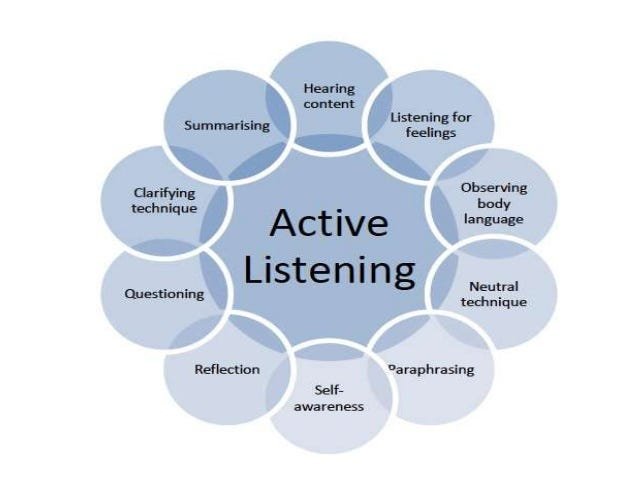In today’s interconnected world, effective intercultural communication has become a key skill for spiritual leaders. As the world becomes more diverse and globalized, understanding and bridging cultural differences is crucial for building harmonious relationships, promoting inclusivity, and fostering spiritual growth. In this article, we will explore the essential skills that spiritual leaders can develop to master effective intercultural communication.

Understanding Cultural Diversity: Embracing Differences
To effectively communicate across cultures, spiritual leaders must first develop an understanding and appreciation for cultural diversity. This starts with acknowledging that each culture has its own unique values, beliefs, and communication styles. By embracing these differences, spiritual leaders can create inclusive environments that respect and celebrate diversity.


Active Listening: The Power of Empathy
Active listening is a fundamental skill for effective intercultural communication. Engaging in active listening means paying full attention to the person speaking, seeking to understand their perspective, and empathizing with their experiences. By practicing active listening, spiritual leaders can build trust and foster meaningful connections with individuals from different cultural backgrounds.
Non-Verbal Communication: Beyond Words
Non-verbal communication plays a significant role in intercultural interactions. Spiritual leaders should be aware of non-verbal cues such as body language, facial expressions, and gestures. Paying attention to these subtle signals can help spiritual leaders accurately interpret messages and avoid misunderstandings.
Cultural Sensitivity: Respecting Boundaries
Cultural sensitivity is crucial for effective intercultural communication. Spiritual leaders should be aware of potential cultural differences in areas such as personal space, greetings, and verbal etiquette. Respecting these boundaries demonstrates respect and appreciation for different cultural norms and traditions.
Emotional Intelligence: Understanding and Managing Emotions
Emotional intelligence is a vital skill for spiritual leaders engaging in intercultural communication. It involves understanding and managing one’s emotions and recognizing the emotions of others. By developing emotional intelligence, spiritual leaders can navigate cultural differences with empathy and compassion, promoting understanding and harmony.
Adaptability: Flexibility in Communication Style
Adapting one’s communication style to suit different cultural contexts is essential for effective intercultural communication. Spiritual leaders should strive to be flexible and adaptable in their approach, considering the cultural backgrounds and preferences of those they are communicating with. This flexibility can foster effective dialogue and promote mutual understanding.
Cultural Knowledge: Learning and Exploring
To master effective intercultural communication, spiritual leaders should continuously seek knowledge and information about different cultures. This includes learning about cultural traditions, customs, history, and current issues. Taking the time to educate oneself on various cultures demonstrates a genuine interest in fostering intercultural understanding.
Conflict Resolution: Navigating Differences
In intercultural communication, conflicts may arise due to misunderstandings or differences in cultural values. Spiritual leaders should possess conflict resolution skills to address and resolve conflicts in a respectful and constructive manner. Active listening, empathy, and open-mindedness are essential in finding common ground and promoting harmony.
Conclusion: Intercultural Communication
In conclusion, mastering effective intercultural communication is an essential skill for spiritual leaders in today’s diverse world. By developing an understanding and appreciation for cultural diversity, practicing active listening, being aware of non-verbal communication, and cultivating cultural sensitivity and emotional intelligence, spiritual leaders can connect with individuals from different cultural backgrounds, foster inclusivity, and promote spiritual growth. With continuous learning and a commitment to fostering intercultural understanding, spiritual leaders can truly make a positive impact in their communities and beyond.
FAQs
Effective intercultural communication is crucial for spiritual leaders, especially those tasked with accomplishing the Great Commission, as it enables them to connect with diverse cultures and effectively share their message. Without cultural competence (CQ), it would be challenging for spiritual leaders to understand and meet the specific needs of different cultures, hindering their ability to spread the Good News.
The Equality Network LLC (TEN) recognizes the importance of cultural competence for spiritual leaders and provides resources to support their growth in this aspect. They offer an extensive resource hub, globally recognized assessments, workshops, training, and coaching specifically designed to help spiritual leaders assess their CQ and develop intercultural competence and communication skills.
Active listening is vital for spiritual leaders engaged in intercultural communication because it demonstrates respect, empathy, and a genuine desire to learn from others. By practicing active listening, spiritual leaders can bridge cultural gaps and build meaningful relationships across different cultures, promoting understanding and unity.
The Equality Network LLC (TEN) offers resources such as workshops, webinars, and educational materials focused on improving active listening skills in intercultural communication. By utilizing these resources, spiritual leaders can develop a deeper understanding of effective listening techniques and apply them when engaging with individuals from diverse cultures.
Non-verbal communication plays a significant role in intercultural interactions as it can convey meanings and emotions that words alone cannot express. Understanding and interpreting non-verbal cues, such as body language and facial expressions, helps spiritual leaders communicate effectively and avoid misunderstandings across cultural boundaries.
Acquiring cultural sensitivity involves developing an awareness and appreciation for the values, traditions, and beliefs of different cultures. The Equality Network LLC (TEN) supports spiritual leaders in this process by providing resources and training that promote cultural awareness and sensitivity, allowing them to navigate intercultural communication with respect and understanding.
Emotional intelligence is essential for spiritual leaders engaged in intercultural communication as it enables them to recognize and manage their own emotions and empathize with the emotions of others. By cultivating emotional intelligence, spiritual leaders can establish meaningful connections, resolve conflicts, and foster understanding across diverse cultures.
The Equality Network LLC (TEN) offers resources, such as emotional intelligence workshops and coaching services, specifically designed to assist spiritual leaders in developing their emotional intelligence for intercultural communication. These resources provide guidance and practical tools to enhance self-awareness, empathy, and effective emotional management.
Adaptability is crucial for spiritual leaders engaged in intercultural communication as it allows them to adjust their approach, communication style, and methods to effectively connect with different cultures. By being adaptable, spiritual leaders can build trust, overcome cultural barriers, and effectively share their message while respecting the diversity of their audience.
The Equality Network LLC (TEN) offers resources and training programs focused on developing adaptability for spiritual leaders engaged in intercultural communication. These resources provide insights into cultural differences, communication strategies, and practical tools that empower spiritual leaders to navigate diverse cultural contexts with flexibility and openness.
Mastering effective intercultural communication and advancing in cultural competence (CQ) are crucial for spiritual leaders in fulfilling the Great Commission. By understanding and connecting with diverse cultures, spiritual leaders can effectively communicate their faith, address the specific needs of different cultures, and foster meaningful relationships that promote unity and the spread the Good News to all corners of the earth.



